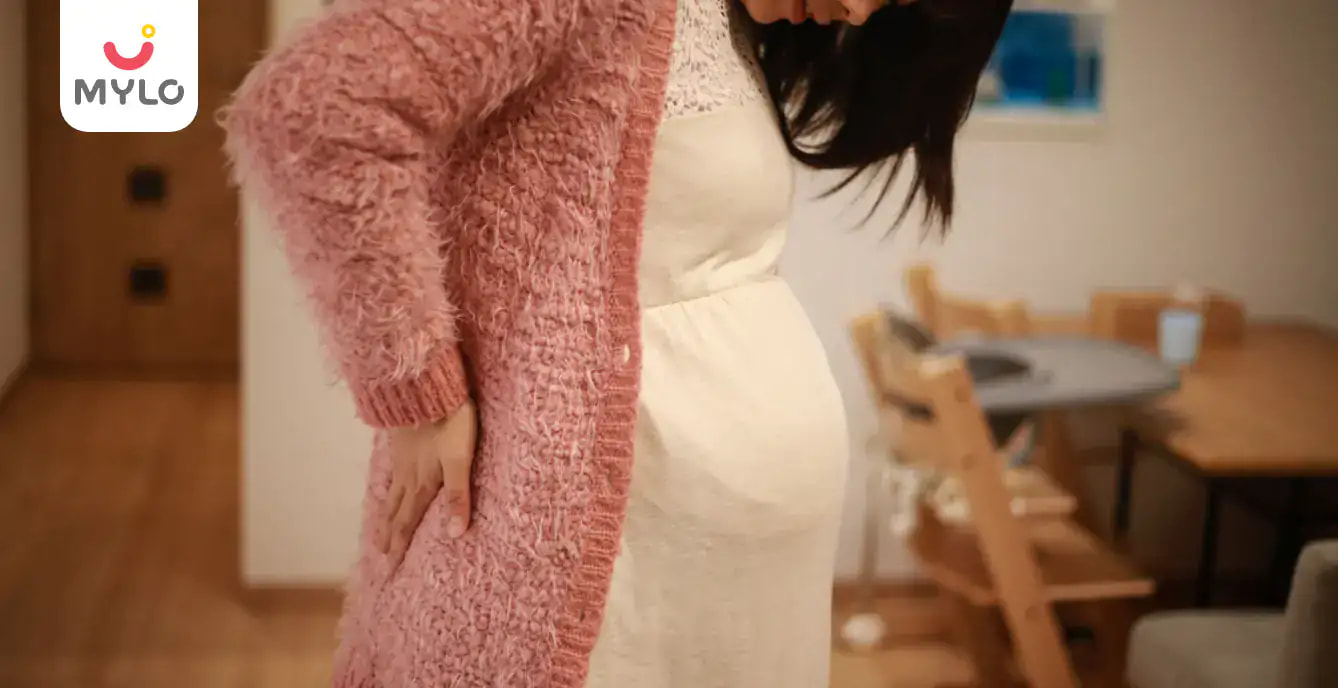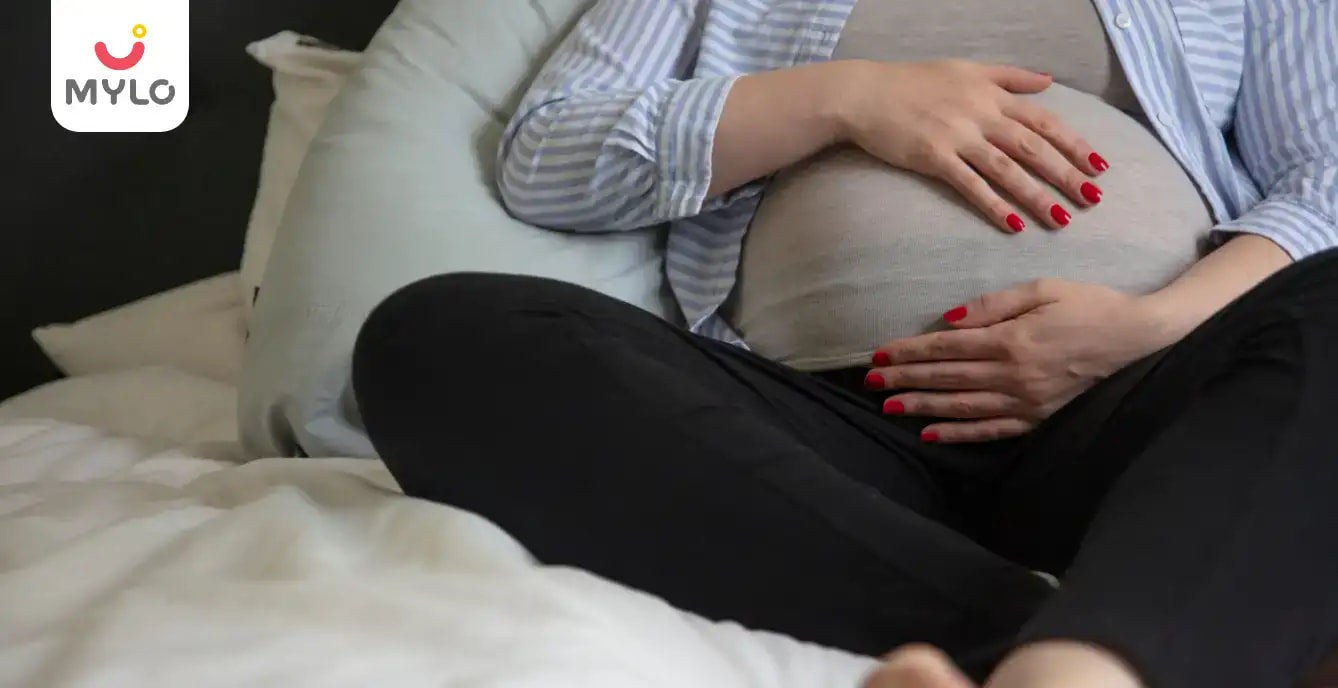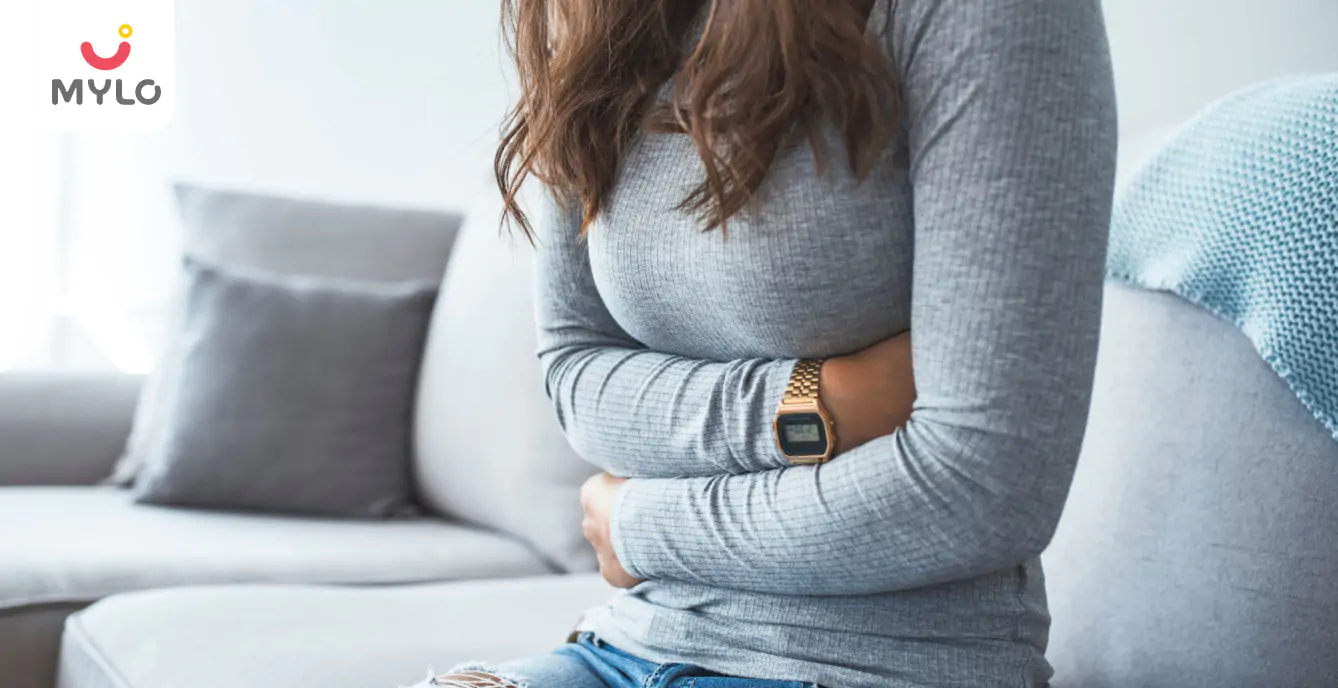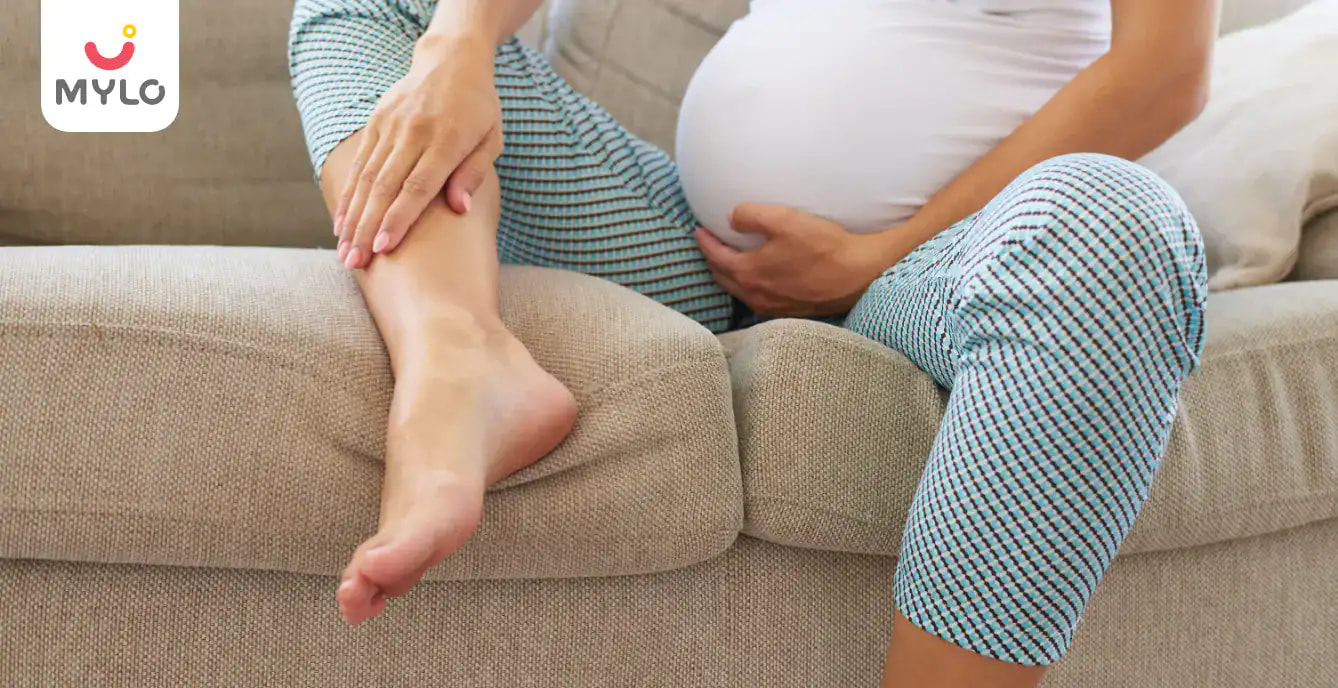Home

Back Pain

Back Pain After Delivery : Causes, Treatment, Tips For Relief
In this Article
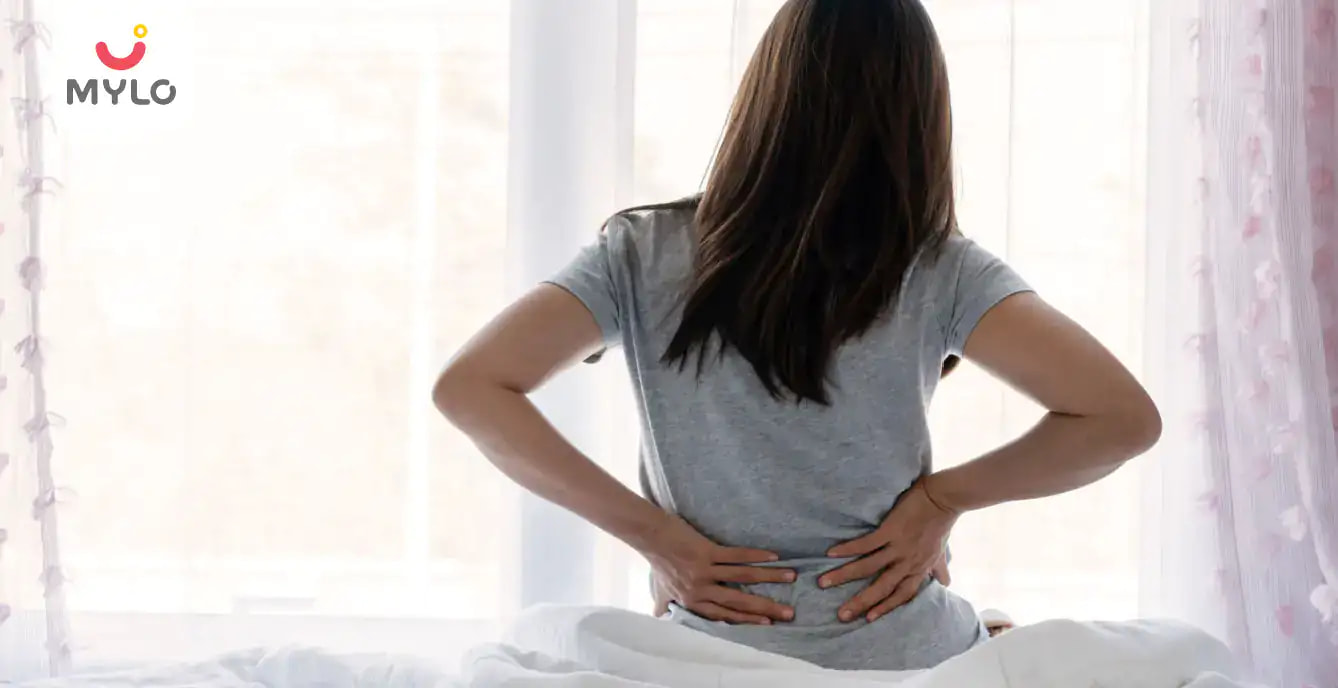
Back Pain
Back Pain After Delivery : Causes, Treatment, Tips For Relief
Updated on 3 November 2023
After a woman goes through childbirth, the last thing she wants to deal with is back pain. Unfortunately, for many women, this is a reality. In fact, studies have shown that up to 80% of women experience some form of back pain after delivery. So, what causes this back pain? And more importantly, what can be done to ease the discomfort? This blog post will explore the causes and treatments for back pain after delivery and provide some tips for relief.
What Is Postpartum Back Pain
Postpartum back pain is a common occurrence after giving birth. There are many possible causes of this pain, including the physical strain of childbirth, hormonal changes, and emotional stress. Luckily, one can also do many things to ease the discomfort and get relief.
One of the most common causes of postpartum back pain is the physical strain of childbirth. A woman's body goes through many changes during pregnancy and delivery, and their back is under a lot of pressure. This can lead to muscular aches, pains, and general fatigue.
What Causes Postpartum Back Pain
Almost all women experience some degree of back pain during pregnancy. It’s typically caused by their extra weight, their changing center of gravity, and the hormones that loosen their joints and ligaments. The good news is that pregnancy-related back pain is usually temporary.
One common cause of postpartum back pain is weak abdominal muscles. The abdominal muscles support the spine, so when they’re weak, it can lead to pain in the lower back. This is often compounded by poor posture and breastfeeding habits.
Another possible cause of postpartum back pain is an injury to the pelvic floor muscles or ligaments. These injuries are often the result of vaginal delivery, but they can also occur in women who have had cesarean deliveries.
How Long Will My Postpartum Back Pain Last
It's common to have some soreness and discomfort for a few days or even a week after the delivery. For most women, the pain goes away on its own. But for some women, the pain can last for months. In most cases, postpartum back pain will go away independently with time and self-care.
When to See a Doctor for Postpartum Back Pain After Delivery
If a woman is experiencing back pain after delivery, it's important to know that they are not alone. In fact, according to the American College of Obstetricians and Gynecologists, up to 70% of new moms will experience some degree of back pain in the postpartum period.
If self-care measures don't seem to be helping, or if one has severe pain, it's important to see their doctor. They can rule out other potential causes of your pain and guide how best to treat it.
Treatments for Postpartum Back Pain After Delivery
There are several different treatments that can be effective in treating postpartum back pain. Some of the most common and effective treatments include:
1. Ice or heat therapy: Applying ice or heat to the affected area can help to reduce inflammation and pain.
2. Massage: Massaging the affected area can help to loosen tight muscles and relieve pain.
3. Exercise: Gentle exercises after pregnancy that strengthen the back and abdominal muscles can help to support the spine and reduce pain.
4. Chiropractic care: Adjustments to the spine can help relieve pressure on nerves and improve spinal alignment, reducing pain.
5. Acupuncture: This centuries-old treatment involves placing thin needles into specific points on the body. It is thought to stimulate healing and relieve pain by improving the energy flow through the body.
Tips For Relief From Those Postpartum Backaches
Here are some tips for relief from those postpartum backaches:
1. Rest when one can. This is easier said than done when one has a newborn, but try to take a nap when the baby naps or get someone to watch the baby for an hour so they can take a break.
2. Wear supportive clothing. A supportive bra and comfortable shoes can help take some of the strain off of your back. If you're breastfeeding, ensure you have a good nursing bra that gives you plenty of support. Wearing a belly belt, a belt for women after delivery may also help ease your back pain.
3. Try gentle stretches or yoga poses. Some simple stretches or postnatal yoga poses can help relieve tension in your back muscles. Ask your doctor or midwife before starting any new exercise program.
Conclusion
Pregnancy and childbirth are amazing experiences, but they can also take a toll on one's body. If a woman suffers back pain after delivery, know that it is completely normal. This is a very common problem for new moms, but there are things one can do to ease the discomfort. Talk to the doctor about what treatments might be right, and try some of the tips that have been shared here to find relief. Visit Mylo family for more such educational blogs on motherhood and newborn babies.


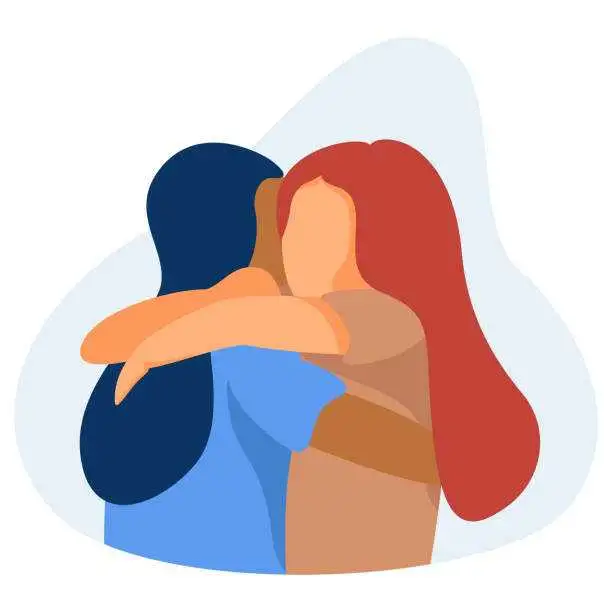
Written by
Mylo Bestie
Mylo Bestie is that naughty, funny soulmate who lightens your life and whom you can tell your deepest secrets!
Read MoreGet baby's diet chart, and growth tips

Related Articles
RECENTLY PUBLISHED ARTICLES
our most recent articles

Diet & Nutrition
গর্ভাবস্থায় আলুবোখরা: উপকারিতা ও ঝুঁকি | Prunes During Pregnancy: Benefits & Risks in Bengali

Diet & Nutrition
গর্ভাবস্থায় হিং | ঝুঁকি, সুবিধা এবং অন্যান্য চিকিৎসা | Hing During Pregnancy | Risks, Benefits & Other Treatments in Bengali

Women Specific Issues
স্তনের উপর সাদা দাগ: লক্ষণ, কারণ এবং চিকিৎসা | White Spots on Nipple: Causes, Symptoms, and Treatments in Bengali

Diet & Nutrition
গর্ভাবস্থায় পোহা: উপকারিতা, ধরণ এবং রেসিপি | Poha During Pregnancy: Benefits, Types & Recipes in Bengali

Diet & Nutrition
গর্ভাবস্থায় মাছ: উপকারিতা এবং ঝুঁকি | Fish In Pregnancy: Benefits and Risks in Bengali

Diet & Nutrition
গর্ভাবস্থায় রেড ওয়াইন: পার্শ্ব প্রতিক্রিয়া এবং নির্দেশিকা | Red Wine During Pregnancy: Side Effects & Guidelines in Bengali
- ইনার থাই চ্যাফিং: কারণ, উপসর্গ এবং চিকিৎসা | Inner Thigh Chafing: Causes, Symptoms & Treatment in Bengali
- গর্ভাবস্থায় ব্রাউন রাইস: উপকারিতা ও সতর্কতা | Brown Rice During Pregnancy: Benefits & Precautions in Bengali
- Velamentous Cord Insertion - Precautions, Results & Safety
- Unlock the Secret to Flawless Skin: 7 Must-Have Qualities in a Face Serum
- Unlock the Secret to Radiant Skin: How Vitamin C Serum Can Transform Your Complexion
- Gender No Bar: 10 Reasons Why Everyone Needs a Body Lotion
- Unlock the Secret to Radiant Skin How to Choose the Perfect Body Lotion for Your Skin Type
- Top 10 Reasons to Apply a Body Lotion After Every Bath
- Communication in Toddlers: Milestones & Activities
- How to Improve Vocabulary for Toddlers?
- A Comprehensive Guide to Understanding Placenta Accreta
- Vulvovaginitis in Toddlers Causes, Symptoms and Treatment
- A Comprehensive Guide to Understanding Cerebral Palsy in Children
- Bitter Taste in Mouth During Pregnancy: Understanding the Causes and Remedies


AWARDS AND RECOGNITION

Mylo wins Forbes D2C Disruptor award

Mylo wins The Economic Times Promising Brands 2022
AS SEEN IN

- Mylo Care: Effective and science-backed personal care and wellness solutions for a joyful you.
- Mylo Baby: Science-backed, gentle and effective personal care & hygiene range for your little one.
- Mylo Community: Trusted and empathetic community of 10mn+ parents and experts.
Product Categories
Baby Carrier | Baby Soap | Baby Wipes | Stretch Marks Cream | Baby Cream | Baby Shampoo | Baby Massage Oil | Baby Hair Oil | Stretch Marks Oil | Baby Body Wash | Baby Powder | Baby Lotion | Diaper Rash Cream | Newborn Diapers | Teether | Baby Kajal | Baby Diapers Pants | Cloth Diapers | Laundry Detergent | Lactation Granules |



